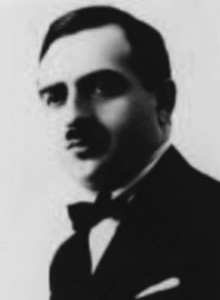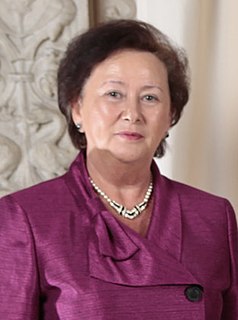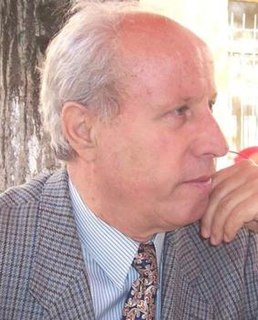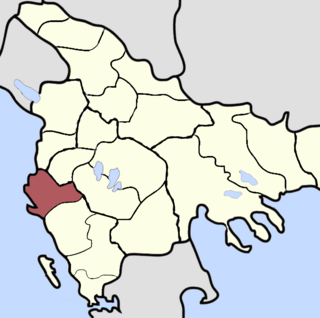
The Albania National Center of Cinematography is the largest film distributor and film production company in the cinema of Albania connected with over 700 films between 1947 and 2012. The studio has produced and distributed the vast majority of Albanian films. Especially important was its work in the 1970s and 1980s when the studio averaged 75–80 movies per year.

Parashqevi Simaku is an Albanian singer noted for her work in the 1980s. She has won numerous awards and worked with some of the best composers and musicians in Albania. Simaku has performed at Festivali i Këngës në RTSH in the years 1982, 1983, 1985, 1986, 1987, 1988, and 1990. In 2006 she signed a contract with Sony and BMG for her new Albanian language CD entitled Echoes from Iliria.

Hamza agë Kazazi also known as Hamz Kazazi (1779–1859) was an Albanian fighter and leader, known for his role in Albanian Uprising of 1835 in Shkodër, back then the center of Pashalik of Scutari of the Ottoman Empire. He had an only son called Tahir Hamze Kazazi. He is also known as the first Albanian to be photographed by Pietro Marubi.
Robert Ndrenika is an Albanian actor and former politician. He was honored with the People's Artist of Albania in 1988.

Violeta Manushi was an Albanian actress. She was honored with the People's Artist of Albania.

The Committee for the National Defence of Kosovo was an Albanian organization illegally founded in Shkodër at the beginning of November 1918. It was mainly consisted of the political exiles from Kosovo and was led by Hoxha Kadri from Priština. It existed in looser form since May 1915.
Rajmonda Bulku is an Albanian actress and a former member of the Assembly of the Republic of Albania for the Democratic Party of Albania.
The Sanjak of Niš was one of the sanjaks of the Ottoman Empire and its county town was Niš. It was composed of the kazas of Niš (Niş), Pirot (Şehirköy), Leskovac (Leskofça), Vranje (İvranye), Kuršumlija (Kurşunlu), Prokuplje (Ürküp) and Tran (Turan).
Irreligion, atheism and agnosticism are present among Albanians, along with the predominant faiths of Islam and Christianity. The majority of Albanians lead a secular life and reject religious considerations to shape or condition their way of life.

Kostandin Boshnjaku (1888–1953) was an Albanian banker, and politician. He was one of the earliest Albanian communists.
This is a list of Kosovo national football team results in its official matches:

Liri Berisha, is an Albanian pediatrician and president of the Albanian Children Foundation, and also an UNICEF ambassador.

Petraq Zoto was an Albanian writer. He is mostly known for his collection of stories, and books targeting children and young readers.

The Old Mosque or Sulejman Pasha mosque was the founding mosque of the Albanian capital Tirana. The city developed around the mosque, which was founded by the Ottoman Albanian Pasha Sulejman Bargjini along with a hamam and a bakery.

The Albanian Battalions (1775-1859) were ethnic units of the Russian Imperial Army that were made up mostly of Albanians; fighting against the Ottoman Empire.

Eva Murati is an Albanian actress and TV host. Starting her career at the age of 15, she made herself known in Albanian showbiz through different commercials and modeling jobs. Eva hosted her first TV program Antilope in 2013 and then she co-hosted with Adi Krasta Duartrokitje, both of them at Agon Channel. She then moved to Vizion Plus in 2016 where she hosted Miss Universe Albania and VIP Zone. She is currently hosting the Studio UEFA Champions League and Sports Week at Tring Digital. Murati debuted in film in The Outlaw in 2013. She then starred in 2017 in Ti mund të më quash Xhon. In 2016 she starred in the TV series Skanderbeg. Her most recent project is Familja Kuqezi which is currently filming.
The second series of the Albanian reality talent show The Voice Kids Albania began airing on January 19, 2018 and ended on April 20, 2018, being broadcast on a weekly basis on Top Channel.















